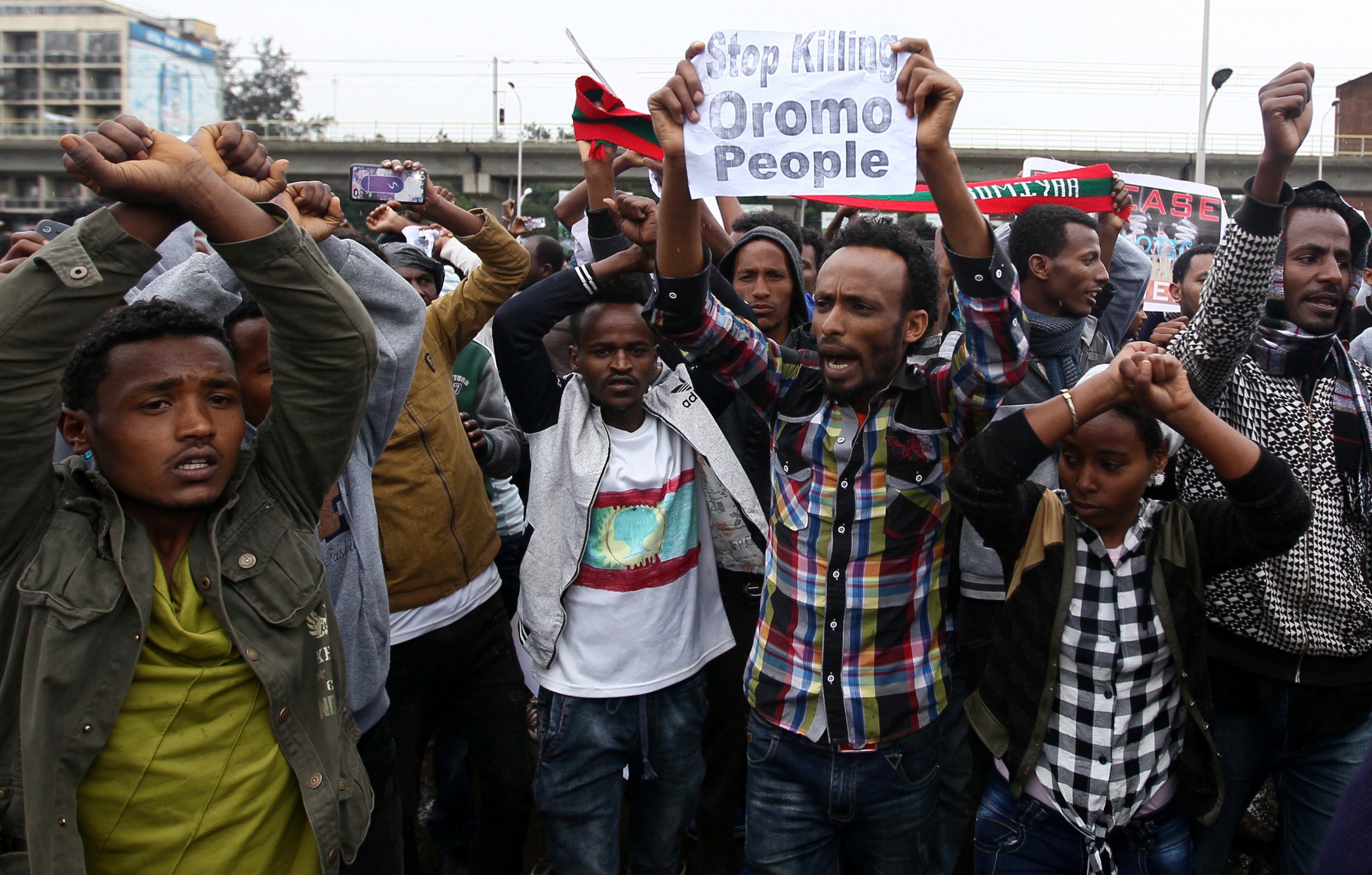
Ethiopia must admit international observers to establish the facts around deadly protests that killed scores of people over the weekend, according to the United Nations human rights chief.
Anti-government protesters took to the streets in several parts of the Horn of Africa country to demonstrate against alleged economic and political marginalization. In the Oromia region—which has seen an unprecedented wave of demonstrations in recent months—protesters marched in the capital Addis Ababa, while rallies were also held in parts of the northwestern Amhara region, including the regional capital Bahir Dar.
Amnesty International claimed that almost 100 people were killed and hundreds injured in the protests as Ethiopian security forces used live bullets on protesters. The worst violence took place in Bahir Dar, where some 30 people were killed in a single day, according to the rights group. The Ethiopian government blamed "nearby and distant foreign enemies and social media activists" for holding the protests, which it said were unauthorized, and that security forces were reacting to violence and vandalism from demonstrators. The authorities also disputed the death toll given by rights groups and opposition politicians.
The U.N. High Commissioner for Human Rights, Zeid Ra'ad al-Hussein, said that the use of live ammunition against protesters "would be a very serious concern for us" and said that information about the protests had been difficult to come by. Press freedom is limited in Ethiopia, with the country ranked 142 out of 180 in the 2016 World Press Freedom Index by Reporters Without Borders.
Zeid urged Ethiopian authorities to give international observers access in order to determine whether security forces had used excessive force and "promptly investigate…these allegations," in an interview with Reuters on Wednesday.
Protests began in the Oromia region—which is home to the country's largest ethnic group, the Oromo—in November 2015 over government plans to expand the territory of Addis Ababa, which Oromo protesters said would result in forced land seizures and displacement of farmers. The government dropped the plan in January, but protests continued, partially motivated by a brutal crackdown that had seen more than 400 people killed, according to Human Rights Watch (HRW). A spokesman for the Ethiopian Embassy in London, Abiy Berhane, told Newsweek that HRW's death toll was "exaggerated."
The other main group protesting the government is the Amhara, Ethiopia's second-largest ethnic group. The Amharas have a decorated history in the country; all but one of the Ethiopian emperors were Amhara, according to IBTimes UK.
Uncommon Knowledge
Newsweek is committed to challenging conventional wisdom and finding connections in the search for common ground.
Newsweek is committed to challenging conventional wisdom and finding connections in the search for common ground.
About the writer
Conor is a staff writer for Newsweek covering Africa, with a focus on Nigeria, security and conflict.
To read how Newsweek uses AI as a newsroom tool, Click here.








